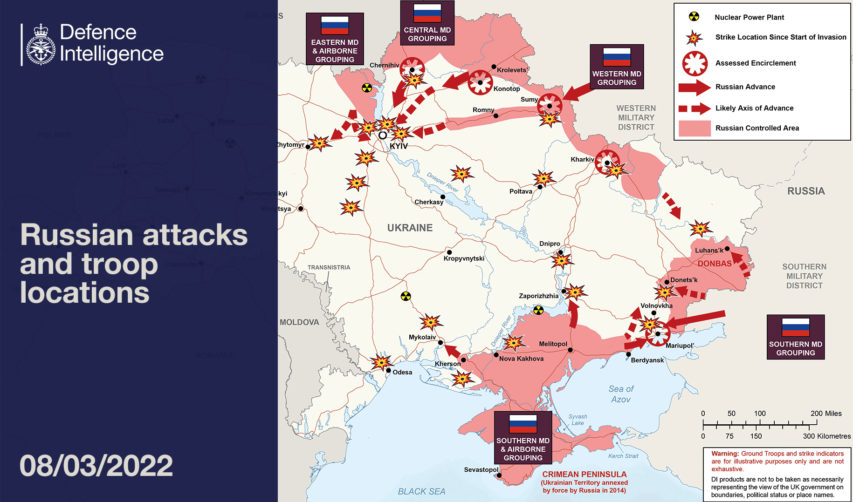In The Critic, Mark Almond says we need to keep a clear perspective about the war in Ukraine, to condemn Russian aggression certainly, but also to see as clearly as we can what kind of government is in charge of defending Ukraine:
“Know Your Enemy” is a standard invocation in wartime. But, if clear-eyed appreciation of an opponent and his intentions is obviously necessary, shouldn’t “Know Your Ally” be equally imperative?
Even when war has become a spectator sport for Westerners, rejoicing in killing Putin with their mouths in cyberspace and joyously kicking Russian cripples out of the paralympics, there is a real conflict going on which is horrendous for Ukrainians, which also has serious implications even for us off-shore islanders, as well as Europe as a whole.
Romanticising our chosen side and vilifying their foes are natural reactions, but fairy-tale versions of conflict often disguise the flaws of the allies even if they pale by comparison with the vices of the invader.
Think how in 1914 “Plucky Little Belgium” was portrayed as a damsel in distress about to be raped by a literally monstrous Hun. But until August, 1914, Belgium’s place on the scale of victimhood was decidedly at the perpetrator end. The horrific exploitation of the Belgian Congo’s population as slaves to King Leopold’s greed — fictionalised by Conrad’s Heart of Darkness — had been exposed by Sir Roger Casement and E.D. Morel, who both rejected the defence of Belgium.
Casement went over the top to side openly — and suicidally with Imperial Germany — while Morel went to prison for urging men not to join up. They were deeply mistaken about Germany, but they did know something about our Belgian ally’s moral record.
Wartime Polish resistance to the Nazis and service in the RAF is fondly remembered in this country and rightly so, but the Polish junta in 1939 was as militarily incompetent as their Argentinian counterparts in 1982. The courage of ordinary Polish soldiers should not make people forget the regime which had colluded with Hitler against the Czechs in 1938. Our other ally, Stalin, subsequently “liberated” the Poles in his inimitable way. The trade-offs and alliances that defeated the Nazis were extremely ugly.
Turning to Ukraine today, it is easy — and heart-warming — to get swept away by the pictures of Ukrainian soldiers fight back against the vast Russian army or civilians blocking the path of the “Russian steamroller” (so admired in 1914 by the British public). President Zelensky is by far the best president Ukrainians have had since independence in 1991. That might seem a back-handed compliment when we consider how low his predecessors set the bar. But the focus in Western media on this real life Charlie Chaplin defying the Kremlin’s “Great Dictator” makes good “reality tv” but overlooks the actual power-structures in Ukraine.




